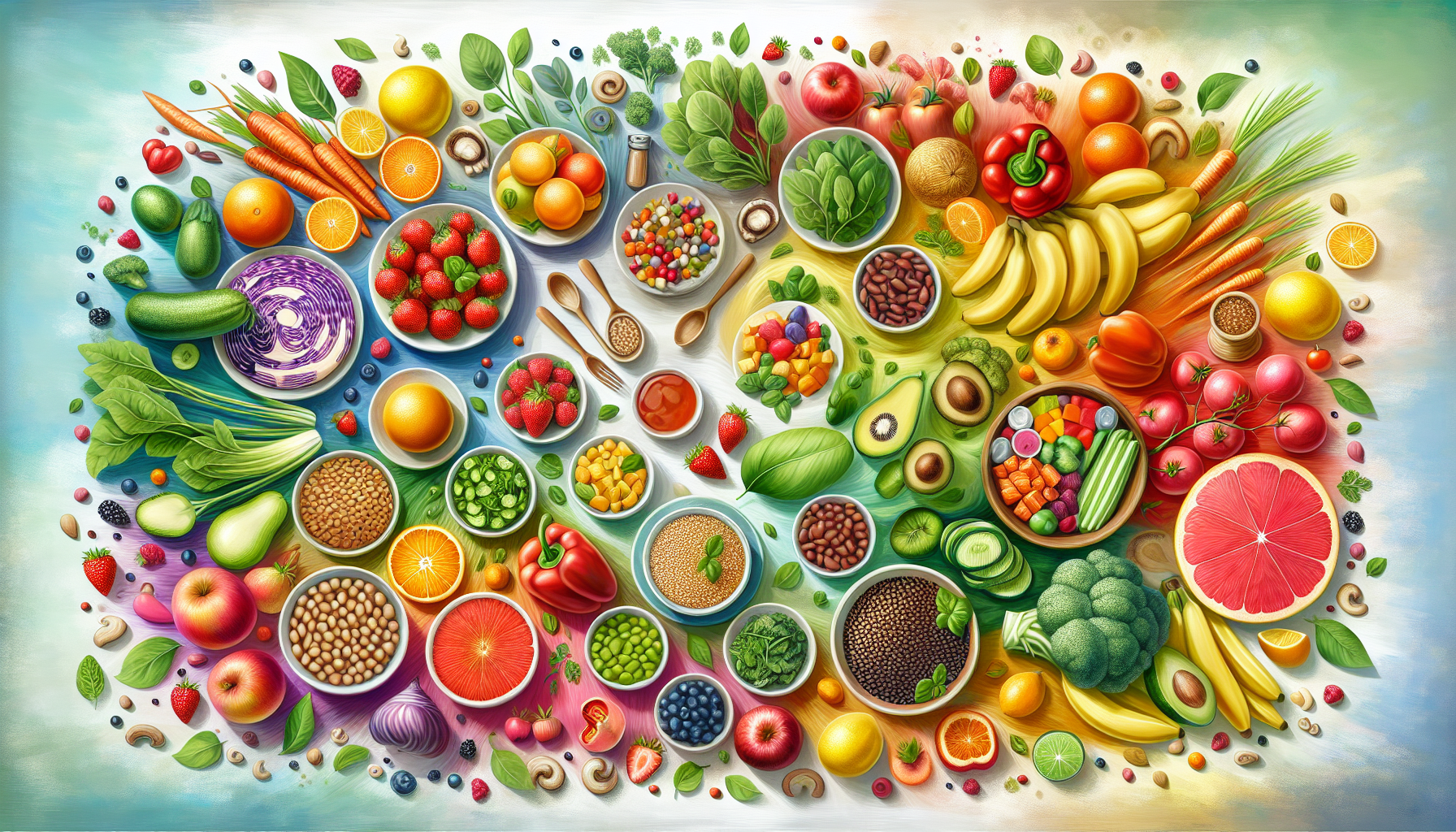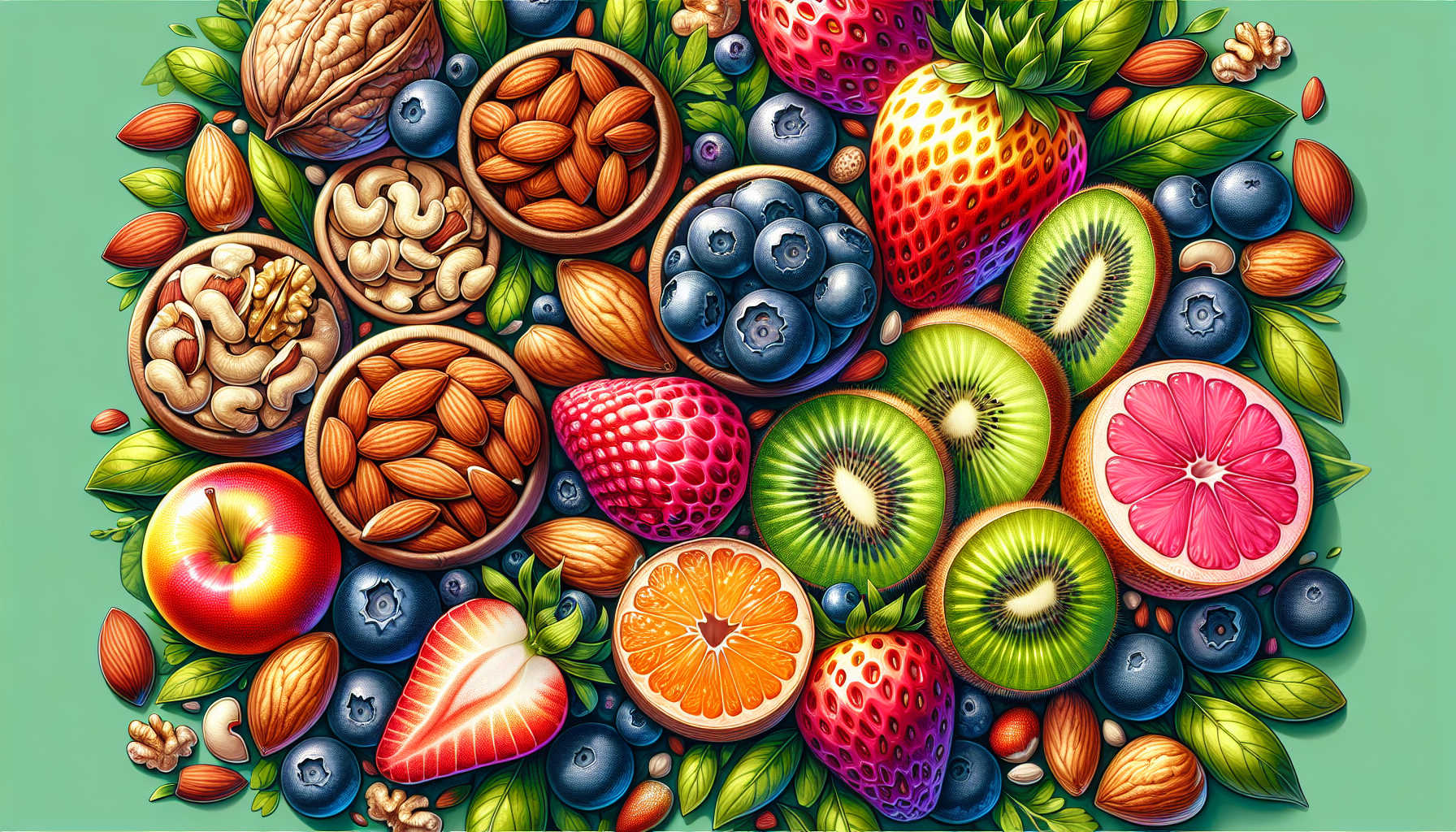
Effective Nutrition for Wound Healing: Best Foods and Tips
Ever wondered how your diet affects wound healing? Discover how specific nutrients and foods can speed up recovery and improve healing outcomes. This guide on nutrition for wound healing will help you make informed dietary choices for better wound care.
Key Takeaways
- Nutrition is crucial for wound healing, significantly affecting speed and effectiveness; a balanced diet rich in proteins, vitamins, and hydration is essential.
- Key nutrients for healing include proteins, vitamins A and C, zinc, and omega-3 fatty acids, all of which play specific roles in tissue repair and reducing inflammation.
- Chronic wound management may require specialized nutritional strategies and supplementation to address deficiencies, especially in malnourished patients or those with underlying conditions.
Effective Nutrition for Wound Healing: Best Foods and Tips
Wound healing relies on more than just topical treatments and medical interventions. Nutrition significantly influences the speed and efficiency of healing. Thus, nutritional support is a vital component of wound management, affecting both the speed and effectiveness of healing. Malnutrition can severely impede the body’s ability to repair and maintain healthy tissue, leading to complications in wound healing.
A diet rich in essential nutrients promotes optimal wound healing. Proper hydration alone can accelerate healing rates by up to 50%. A balanced diet featuring lean proteins, fruits, vegetables, whole grains, and nuts provides the necessary nutrients for healing.
We will explore the importance of nutrition in wound healing and identify the best foods for recovery.
Introduction
The wound healing process is a complex interplay of biological events that can be significantly influenced by nutrition. From the inflammatory response that kickstarts healing to the formation of new tissue, each phase requires adequate nutritional support. Evidence supporting the role of nutrition in wound healing continues to grow, highlighting the need for further research.
Different phases of wound healing, like inflammation and cell migration, require specific nutrients. Poor nutrition can impair wound healing, increasing the risk of infection and delayed wound healing. Optimizing your diet can significantly improve healing outcomes, ensuring efficient wound repair.
The Importance of Nutrition in Wound Healing

Nutrition is fundamental for wound care, significantly affecting healing speed. Adequate nutrition is essential for successful wound healing, as deficiencies can disrupt the healing process. Effective wound healing requires a diet with a variety of essential nutrients from all major food groups: proteins, fruits, vegetables, dairy, and grains.
Proper hydration can accelerate wound healing by up to 50%. Nutrient deficiencies prolong healing and raise infection risks. Malnutrition severely hampers tissue repair and maintenance, complicating wound healing. Inadequate nutrition can result in protein-energy malnutrition, impairing healing.
Key Nutrients for Optimal Wound Healing
Proteins, vitamins, and minerals are vital for optimal healing and tissue repair. The body’s catabolic state during healing increases the demand for these nutrients. Foods rich in these nutrients significantly support healing.
Whole foods rich in vitamins and minerals are essential for healing. We will start with the importance of proteins and amino acids.
Protein and Amino Acids
Adequate dietary protein prevents negative impacts on immune function and wound healing. Chronic wounds can increase protein needs by up to 250% and caloric needs by 50%, emphasizing the need for nutritional intervention. Adequate lean protein intake supports muscle, skin, and tissue repair, aiding wound healing.
Lean protein sources in meals significantly boost tissue repair and immune response. Chicken, yogurt, and beans provide essential amino acids for tissue repair and immune function. Arginine enhances collagen synthesis and improves immune function during wound healing.
Vitamins and Minerals
Vitamins are crucial for wound healing, supporting collagen synthesis and immune function. Vitamin A stimulates fibroplasia and epithelialization, aiding tissue repair. Vitamin C is vital for collagen formation, cell migration, and angiogenesis, speeding up healing after trauma.
Dark green leafy vegetables like kale and orange fruits provide essential Vitamin A and C for effective wound healing. Zinc is necessary for DNA replication, collagen production, and immune response, crucial for wound healing.
Iron is necessary for oxygen transport and collagen synthesis; deficiency impairs healing.
Essential Fatty Acids
Essential fatty acids support tissue growth regeneration and repair, critical for healing. Omega-3 fatty acids, known for their anti-inflammatory properties, can enhance healing.
These fatty acids maintain cell membrane integrity, ensuring proper cell function during healing.
Foods That Promote Wound Healing

Lean proteins provide amino acids for tissue repair and collagen formation. Include chicken, turkey, fish, legumes, and tofu in your meals to support healing.
Colorful fruits and vegetables supply vital vitamins, minerals, and antioxidants that support healing. Berries, oranges, and leafy greens are beneficial due to their high vitamin content, crucial for tissue repair.
Whole grains like quinoa, brown rice, and oats provide energy and essential nutrients for proper healing. Nuts and seeds, like almonds and pumpkin seeds, are good sources of healthy fats and proteins that promote recovery.
Lean Proteins
Poultry, particularly chicken and turkey, is an excellent source of glutamine and arginine, aiding recovery and wound healing. Lean proteins provide essential amino acids necessary for tissue repair.
Amino acids in lean proteins stimulate collagen production and support overall healing.
Fruits and Vegetables
Colorful fruits and vegetables are crucial for healing due to their high vitamin, mineral, and antioxidant content.
Whole Grains and Nuts
Whole grains and nuts provide essential nutrients and energy, contributing to recovery and tissue healing. Whole grains also provide necessary carbohydrates and fibers to maintain energy levels.
Additional Nutrition Tips for Enhancing Wound Healing
The body often requires increased calories and protein during healing to facilitate recovery and prevent infections. Increasing calorie intake, along with proteins, vitamins A and C, and zinc, is crucial during wound healing. A balanced diet rich in proteins, vitamins, and healthy fats enhances wound healing.
High-calorie diets may be necessary to meet the increased energy demands of chronic wound patients. Blood sugar control is particularly important for diabetic individuals to enhance wound healing. Carbohydrates provide essential energy for fibroblast migration during wound healing.
Hydration
Hydration supports skin elasticity and efficient blood circulation, delivering oxygen and nutrients to wounds. Staying hydrated maintains skin elasticity and supports healing processes.
Encourage adequate fluid intake throughout the day to support hydration needs.
Balanced Diet Planning
Maintaining a healthy weight during wound healing is crucial, as both underweight and overweight individuals face risks. Consuming two to three servings of protein daily supports skin, tissue, and muscle repair.
Addressing barriers to adequate food intake is essential for wound recovery.
Blood Sugar Management
Stable blood sugar levels are essential for effective wound healing, especially in diabetic patients. High blood sugar impairs the body’s ability to heal wounds and increases complication risks. For diabetics, managing blood sugar levels is essential to prevent injuries and facilitate healing.
High blood sugar impairs wound healing, increasing infection and complication risks. Stable blood sugar levels are vital for diabetics to enhance wound healing.
Omega-3 fatty acids reduce inflammation and accelerate wound healing.
The Role of Supplements in Wound Healing

Specific nutrient supplements, like protein and vitamins, can enhance wound healing in chronic wound patients. Nutritional supplements are essential adjuncts to regular diets for those with deficiencies or increased needs. Those with severe nutrient deficiencies or chronic conditions may benefit from targeted supplementation.
Monitoring nutritional intake and considering supplements can significantly improve promoting wound healing.
When to Consider Supplements
Severe nutrient deficiencies or chronic conditions often necessitate supplementation for wound healing. Supplements provide necessary nutrients that might be lacking in the regular diet, ensuring optimal healing conditions.
Common Supplements for Wound Healing
- Multivitamins are recommended to ensure adequate intake of essential vitamins and minerals for overall healing.
- Protein powders are often included in wound healing regimens to support tissue repair and regeneration.
- Studies also show omega-3 fatty acids positively affect inflammation, aiding healing.
Understanding Chronic Wounds and Nutrition
Patients with chronic wounds face unique nutritional challenges that hinder healing. Chronic wounds often occur in malnourished patients with altered micronutrient status.
Nutritional supplements are essential for those with deficiencies hindering healing.
Challenges of Chronic Wounds
Serious wounds like decubitus ulcers and foot ulcers may require medical intervention. Losing 10% lean mass impairs immunity, complicating wound healing.
Developing appropriate nutritional approaches for wound management is necessary.
Specialized Nutritional Strategies
Inadequate nutrition leads to protein-energy malnutrition, contributing to impaired wound healing. Malnutrition is prevalent among elderly patients, particularly in nursing homes, affecting their wound healing capacity. Chronic wound management is complicated by age-related physiological changes and comorbidities.
Patients with chronic wounds face significant nutritional challenges due to underlying conditions like diabetes and vascular disease. Supplementation with nutrients like arginine and glutamine supports the healing process in wound patients. Consulting with a nutritionist and conducting nutritional assessments are crucial steps in creating effective dietary plans for patients with chronic wounds.
How Trinity Wound Care Can Help

Trinity Wound Care provides specialized care for various types of wounds, such as diabetic ulcers and surgical wounds. The clinic offers advanced wound care options, including the use of amniotic membrane allograft tailored to individual patient needs.
Trinity Wound Care uses a team approach, combining expertise from various fields to create personalized treatment plans for patients. Wound evaluations are conducted by skilled healthcare professionals, ensuring a proactive and thorough assessment of each patient’s condition.
Need help treating your wounds?
Contact the dedicated staff at Trinity Wound Care today!
Summary
In summary, proper nutrition is paramount for effective wound healing. Ensuring adequate intake of proteins, vitamins, minerals, and essential fatty acids can significantly enhance the healing process. Hydration, stable blood sugar levels, and a balanced diet also play crucial roles in promoting recovery. Nutritional supplements may be necessary for individuals with specific deficiencies or chronic conditions to support healing.
By understanding the role of nutrition in wound healing and implementing these dietary strategies, you can support your body’s natural ability to heal. Remember, the journey to optimal wound healing starts with the right nutrition.
Frequently Asked Questions
Why is nutrition important for wound healing?
Nutrition is vital for wound healing as it supplies the essential nutrients necessary for tissue repair and immune function, ultimately influencing the speed and effectiveness of recovery. Ensuring proper nutrition can significantly enhance the healing process.
What are the key nutrients for optimal wound healing?
To ensure optimal wound healing, focus on key nutrients such as proteins, vitamins A and C, zinc, iron, and essential fatty acids, as they are crucial for collagen synthesis, immune function, and tissue regeneration. Incorporating these nutrients into your diet can significantly enhance the healing process.
How can I incorporate more protein into my diet to support wound healing?
To support wound healing, include lean protein sources like chicken, turkey, fish, legumes, and tofu in your diet, as they supply essential amino acids for tissue repair and immune function. Prioritizing these foods will enhance your recovery process effectively.
Are supplements necessary for wound healing?
Supplements may be necessary for those with severe nutrient deficiencies or chronic conditions affecting wound healing. Multivitamins, protein powders, and omega-3 fatty acids are commonly beneficial in such cases.
How does Trinity Wound Care help with wound healing?
Trinity Wound Care facilitates wound healing by offering personalized treatment plans tailored to individual needs, supported by advanced wound care options and comprehensive evaluations by skilled healthcare professionals. This approach ensures effective healing strategies for various types of wounds.


